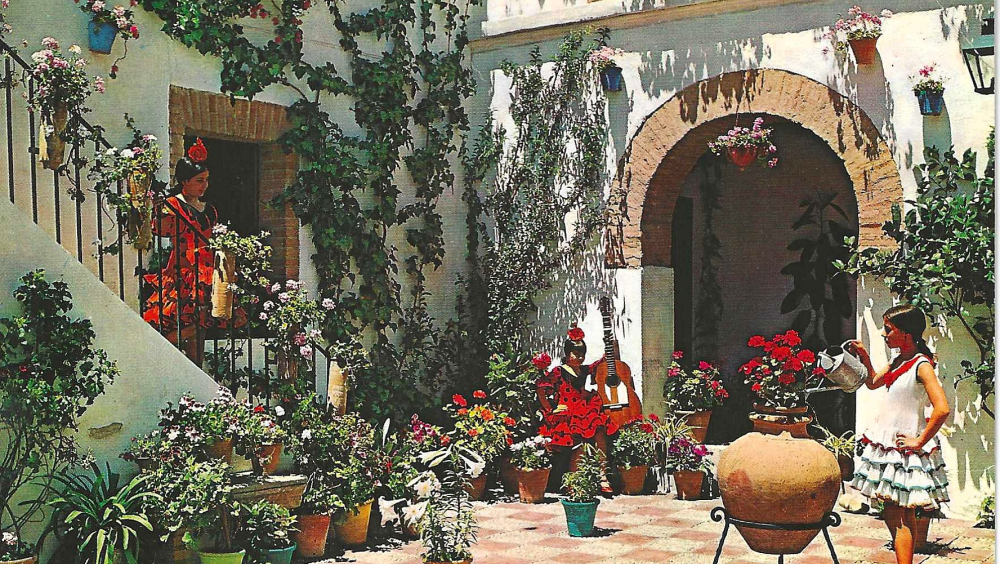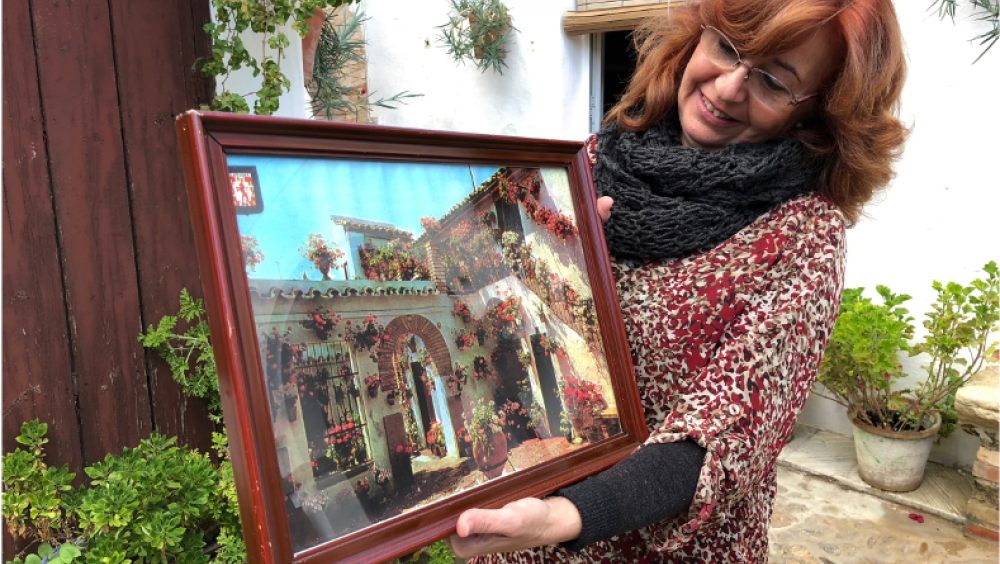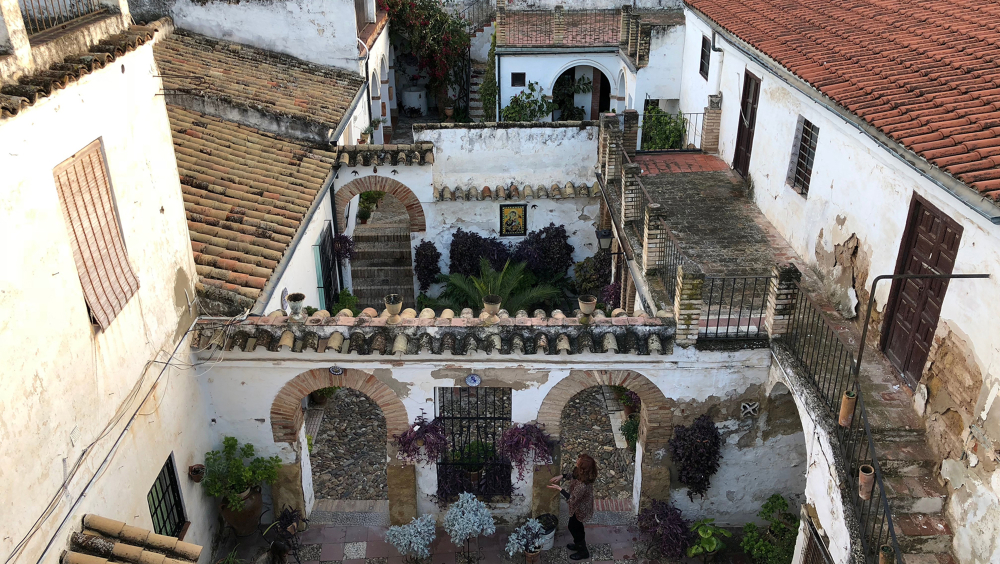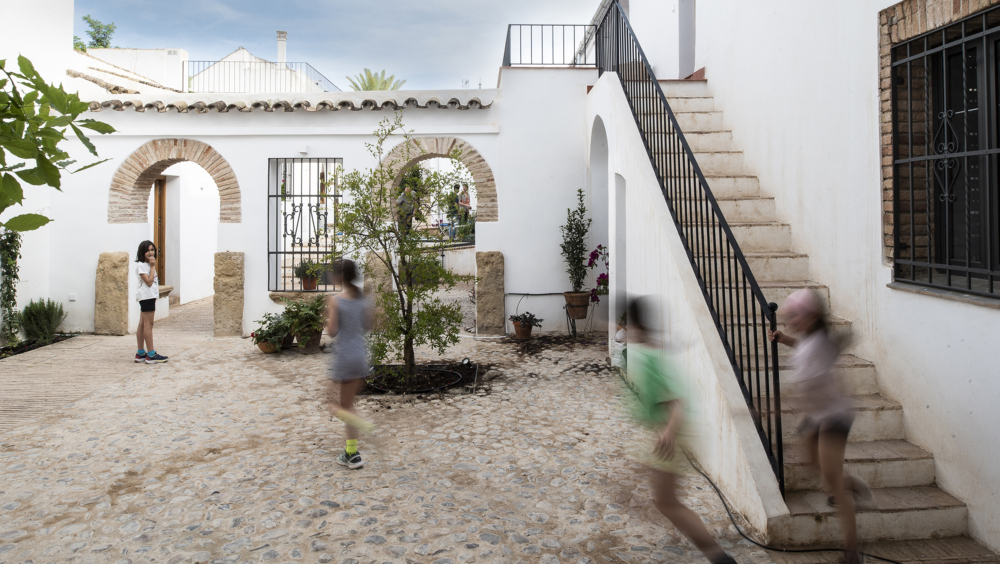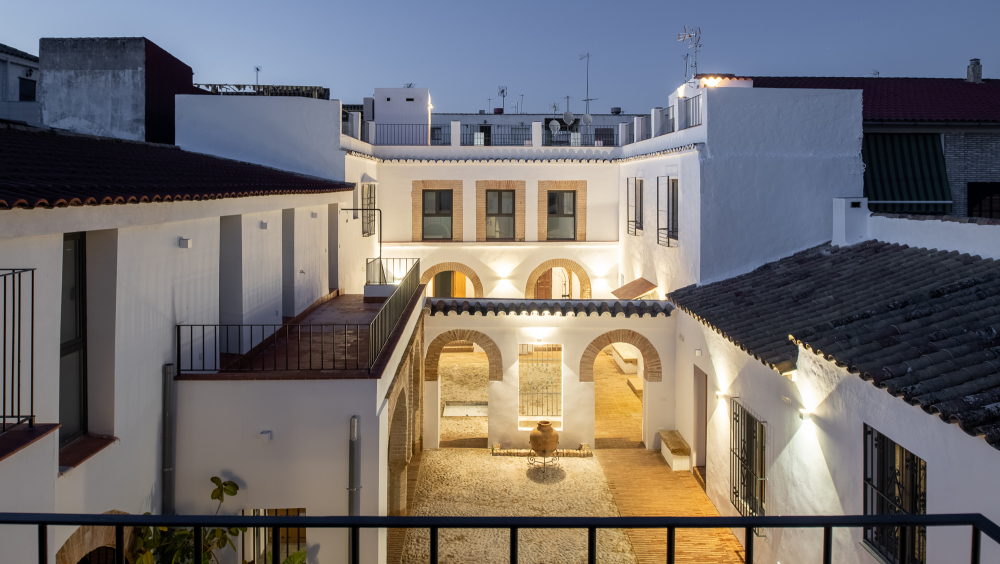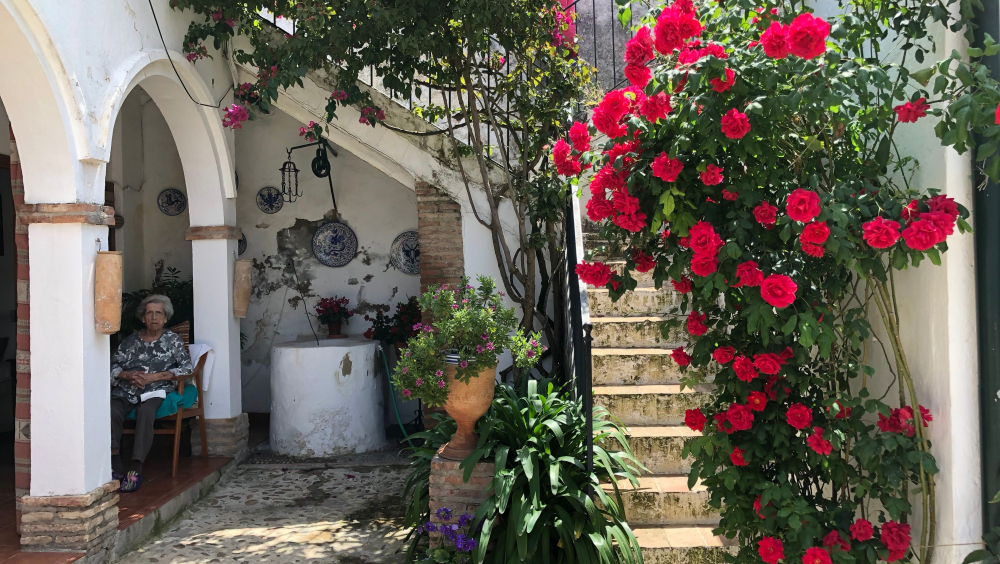Magdalena and Montero´s patio house. A history of coexistence in the Mediterranean city of Cordoba.
The casa de vecinos or casa-patio (patio house) is a multi-family patio typology that stems from the Roman domus but was consolidated then in the Islamic city. Cordoba, capital of Al Andalus from the 1st century, was shaped by this residential type in most of its historical fabric.
In 2012 UNESCO included the Fiesta of the patios in Cordoba (Spain) on the Representative List of the Intangible Cultural Heritage of Humanity because the casa de vecinos is a multi-family house with a central space (the patio) where social activities permit solidarity and community life. On the other hand, the UNESCO announcement has implied an increase of tourism in the Andalusian city, with both positive and negative implications.
The most important value of intangible heritage has to do with a community that is the protagonist, the one that transmits and safeguards it. This heritage community is made up of many agents, from the people who live in the patios to others who interact with them and who have to do with this different vision of inhabiting a city and making it more liveable and more comfortable.
Women have always played an important role in the transmission of knowledge and values around the casas-patio. Today we would like to tell the story of Magdalena. Magdalena is the name of an elderly woman who was the last resident of the first casa de vecinos on which our team, PAX - Patios de la Axerquía, has intervened in Córdoba (Spain). At calle Montero 12 only Magdalena remained, the owner and sole inhabitant of this multi-family space in a state of progressive decay.
PAX Association has initiated an intense activity, both on a local scale - promoting the formation of housing cooperatives in transfer of use and rehabilitation cooperatives that allow the recovery of an important tangible and intangible heritage around the patios - and on a global scale - trying to replicate in other European cities the experience it is carrying out in Cordoba and strengthening international networks with other entities.
The casa de vecinos or casa-patio is a multi-family patio typology that stems from the Roman domus but was then consolidated in the Islamic city. Cordoba, capital of Al Andalus from the 1st century, was shaped by this residential type in most of its historical fabric.
At present, the casas de vecinos or casas-patio continue to be the predominant typology in the historic centre, although the neighbourhoods that make up the centre are suffering a progressive loss of resident population, which is increasingly ageing.
In 2012 UNESCO listed the Fiesta de los patios of Cordoba (Spain) as part of the intangible heritage of humankind because the casa de vecinos is a multi-family patio, around which social activities permit solidarity and community life. The UNESCO announcement has caused an increase of tourism in the Andalusian city, for which the heritage listings also include the Mosque-Cathedral since 1984, much of the historical centre since 1994, and the caliphal city of Madinat al-Zahra since 2018.
The most important value of intangible heritage has to do with a community that is the protagonist, the one that transmits and safeguards it. This heritage community is made up of many agents, from the people who live in the patios to others who interact with them and who have to do with this different vision of inhabiting a city and making it more liveable and more comfortable for its inhabitants.
Women have always played an important role in the transmission of knowledge and values around the casas-patio, as Isabela recalls in a letter to her grandmother:
"The women were the heart of the casas-patio, they were the soul of them. And I think they are the ones who have achieved this intangible heritage of humankind. Without them there would be no casas-patio, I'm sure of that.
They, who, in spite of everything, laughed and arranged the flowers in the neighbours' courtyard, together with the screams of the children”.
Today we would like to tell the story of one of these women, Magdalena. Magdalena is the name of an elderly woman who was the last resident of the first casa de vecinos on which our team, PAX - Patios de la Axerquía, has intervened in Córdoba (Spain). At calle Montero 12 only Magdalena remained, the owner and sole inhabitant of this multi-family space in a state of progressive decay. This is a fantastic casa de vecinos from the 18th century, acquired and rehabilitated by the housing cooperative PAX - Astronautas, made up of six families between 40 and 50 years old with children between 6 and 10 years old.
PAX, a non-profit association organized by people active in the areas of architecture and anthropology, accompanied the cooperative through the various stages of the project: from the purchase of the house from one of Magdalena's daughters in charge of the sale, its renovation, the search for financing and the formation of the cooperative.
Magdalena said that the patio where she lived "was her life" and said "I would rather die than have to leave my house" because "there I had learned what happiness was". What she told us, like other women who lived in casa de vecinos, is significant of what the Andalusian Patio represents in terms of conviviality, and which, in 2012, UNESCO declared an intangible heritage by recognising the “Fiesta de los patios”:
"In the patio I spent my childhood playing with boys and girls who also lived there. Especially the children of my nanny Josefita who raised me when my mother got sick. We would run through the alley and enjoy Christmas together around a candle. Neighbours from the street would come too. "
"Christmas, christenings, communions, weddings, birthdays have been celebrated in the patio. Each time with new neighbours".
We got to know Magdalena's house through a real estate company that had been commissioned to sell the property. When she died, her daughters, authorized in the negotiation, opted for the sale to the cooperative PAX Astronautas -with an innovative project but plagued with uncertainties- against a Madrid businessman determined to convert the house into tourist apartments and ensure the sale by offering a much higher amount of money.
The non-economic values associated with the project were decisive in the choice of the Magdalena´s daughters, but also the fact that the negotiations included aspects such as allowing the mother (Magdalena) to continue to occupy her home until such time as the renovation work made it impossible. As we can see, this project was fundamental to impose, contrary to the norm, the value of use over that of value of exchange.
The decision of Magdalena´s daughters to sell the property to a group of arising from this strategy -in spite of a larger offer on the part of a tourism operation- has led to the birth of the first PAX Astronautas cooperative: six families decided to share a casa de vecinos due to the educational and community value of this cohabitation process.
Throughout the history of Magdalena we have seen that the residential use of the casa-patio is fundamental to the understanding of its intrinsic values: they arise and develop as spaces for domestic life, whether they are shared by the members of one or several families. But patios, as if they were a cellular system, also exert a determining influence on the whole, firstly on the historic centre and then on the city. The Patio City is a set of eco-social cells that permit enhancement of the ecological properties of the Mediterranean city, thanks to their porousness, providing a place that implements the social value of heritage, updated from history, around the community of its inhabitants.
PAX will now apply the model of PAX Astronautas cooperative to different communities that are also seeking social and environmental sustainability for the Mediterranean city, opening the range to active ageing groups and young people, while experimenting with formulas of renovation and granting of use that respond to desires for co-living. The strategy can be applied not only in the Andalusian city, but also as an adaptable mechanism in other similar urban contexts, thanks to a heritage community that is increasingly aware of its capacity to contribute to the future of european sustainable cities.
As applied research –on architecture and heritage, urban and social, ecological and economic– PAX is a governance that sees the Mediterranean city and its community according to the definition of Bauman, namely as the «main laboratory in which to seek, design and experiment with local solutions to globally produced problems.».
With regards to other groups, PAX is working with old women in the process of active ageing, promoting the expansion of the « PAX-Astronautas » cooperative model to this huge collective as an answer to their concerns (loneliness, low incomes,…) empowering capacity for themselves in old age.
Finally PAX is a strategy for urban regeneration and social innovation through cooperative processes, which makes possible the consolidation of a "heritage community", as already was recognized by the Council of Europe. As the jury of the Europa Nostra Award 2022 remarked, PAX demonstrates that the return to this model of settlement prevents depopulation of urban heritage areas while fostering a way of life based on the community as the main protagonist of the habitat, also offering a local solution of resilience with respect to climate change: "The PAX-Patios de la Axerquía project is commendable for addressing depopulation and sustainable living and focusing on climate action," the institution declared. "By renovating these interior spaces in residential buildings, often forgotten, the project has shown how the revival of a way of life can offer solutions to cope, for example, with high temperatures affordably and without a negative impact on climate change. It is an example of how the revitalization of cultural heritage can be important to face contemporary challenges", it concluded.
